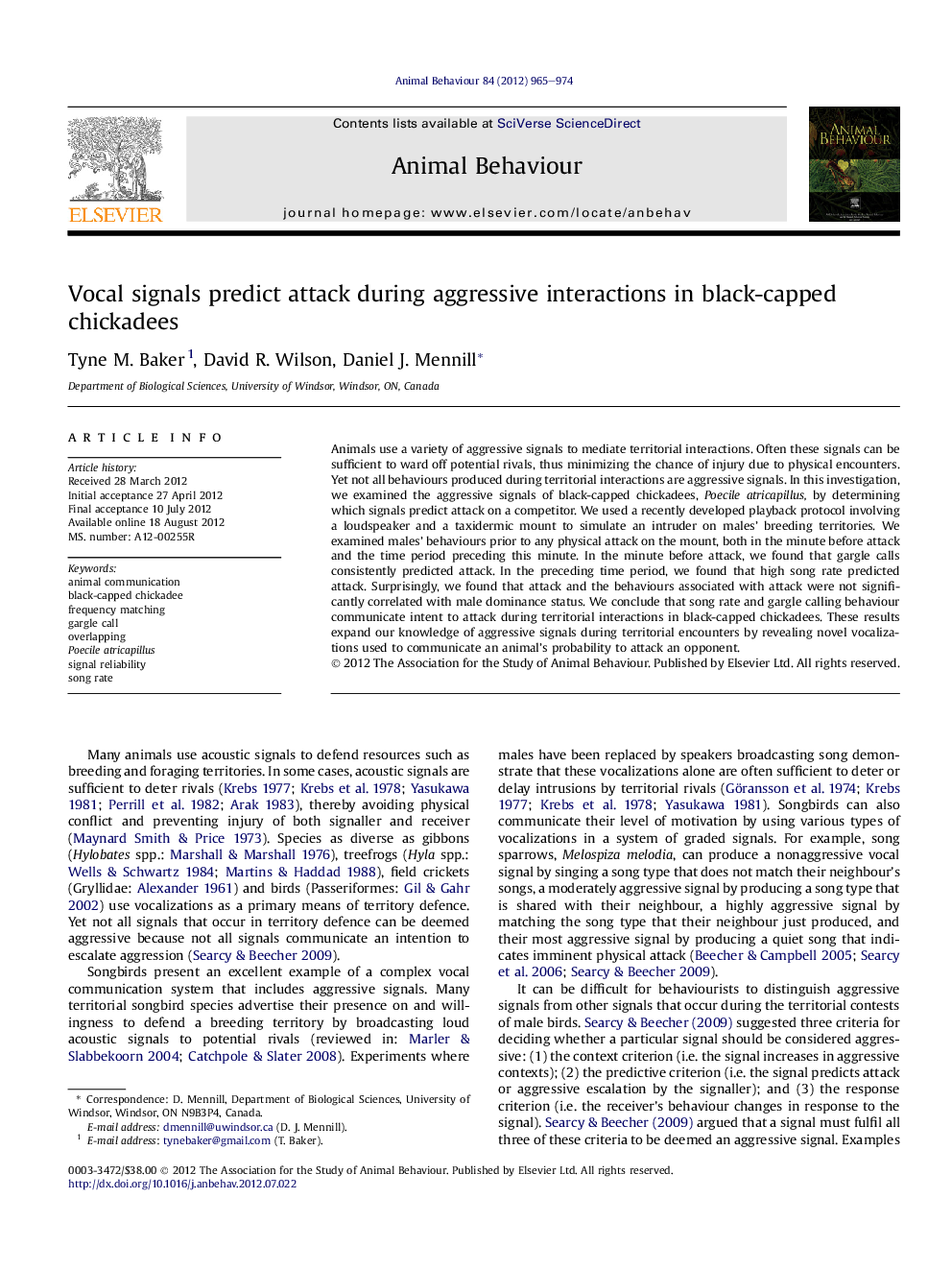| کد مقاله | کد نشریه | سال انتشار | مقاله انگلیسی | نسخه تمام متن |
|---|---|---|---|---|
| 2416535 | 1104279 | 2012 | 10 صفحه PDF | دانلود رایگان |

Animals use a variety of aggressive signals to mediate territorial interactions. Often these signals can be sufficient to ward off potential rivals, thus minimizing the chance of injury due to physical encounters. Yet not all behaviours produced during territorial interactions are aggressive signals. In this investigation, we examined the aggressive signals of black-capped chickadees, Poecile atricapillus, by determining which signals predict attack on a competitor. We used a recently developed playback protocol involving a loudspeaker and a taxidermic mount to simulate an intruder on males' breeding territories. We examined males' behaviours prior to any physical attack on the mount, both in the minute before attack and the time period preceding this minute. In the minute before attack, we found that gargle calls consistently predicted attack. In the preceding time period, we found that high song rate predicted attack. Surprisingly, we found that attack and the behaviours associated with attack were not significantly correlated with male dominance status. We conclude that song rate and gargle calling behaviour communicate intent to attack during territorial interactions in black-capped chickadees. These results expand our knowledge of aggressive signals during territorial encounters by revealing novel vocalizations used to communicate an animal’s probability to attack an opponent.
► We presented territorial male chickadees with playback and a taxidermic mount.
► Birds that sang at a high rate early in playback attacked the mount.
► Birds produced gargle calls immediately prior to attacking the mount.
► Dominance rank did not predict attack but was associated with overlapping behaviour.
► We conclude that gargle calls and song rate are aggressive signals.
Journal: Animal Behaviour - Volume 84, Issue 4, October 2012, Pages 965–974